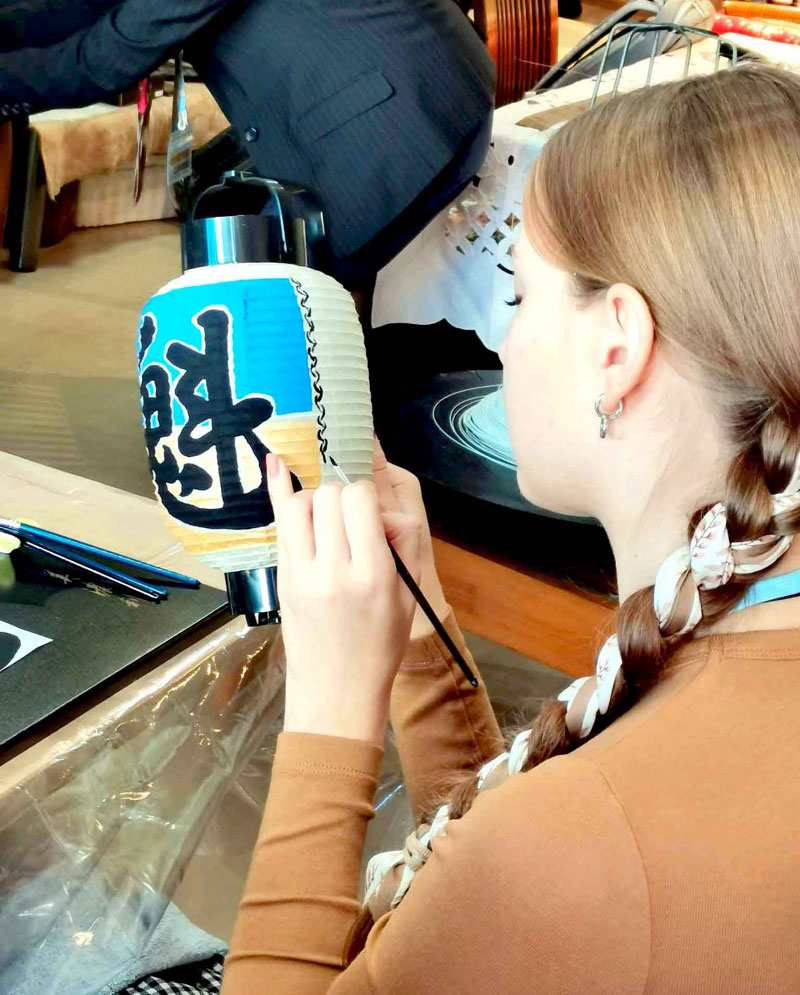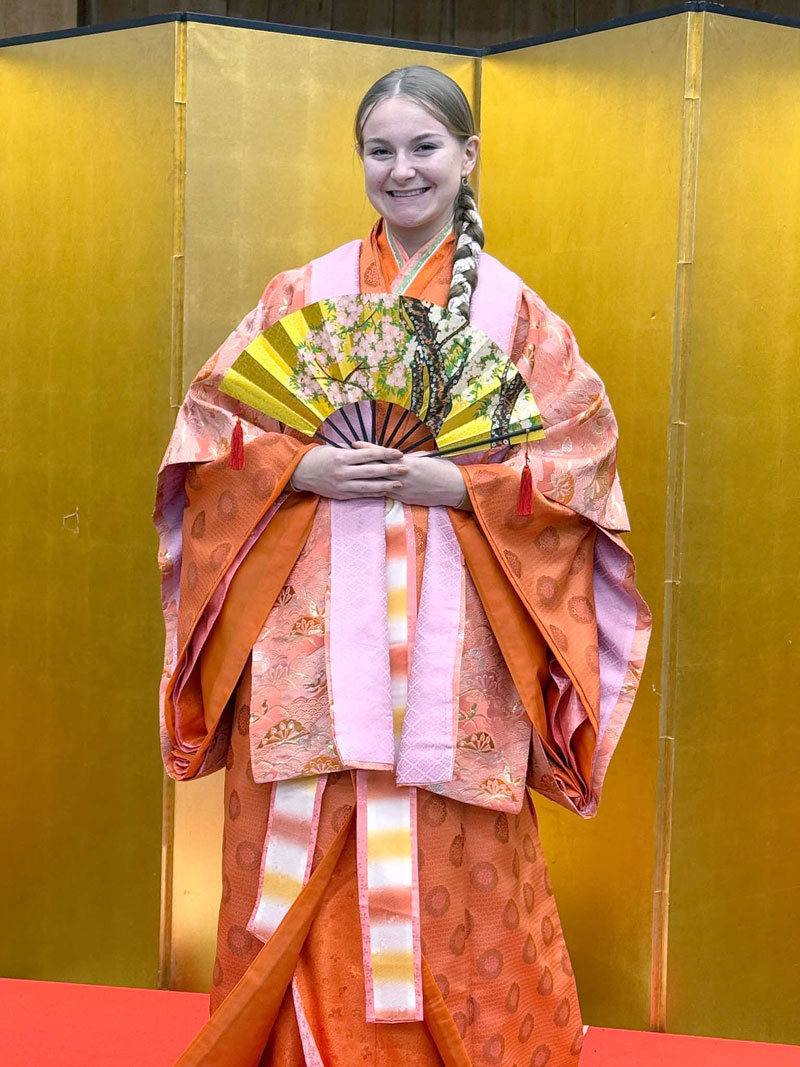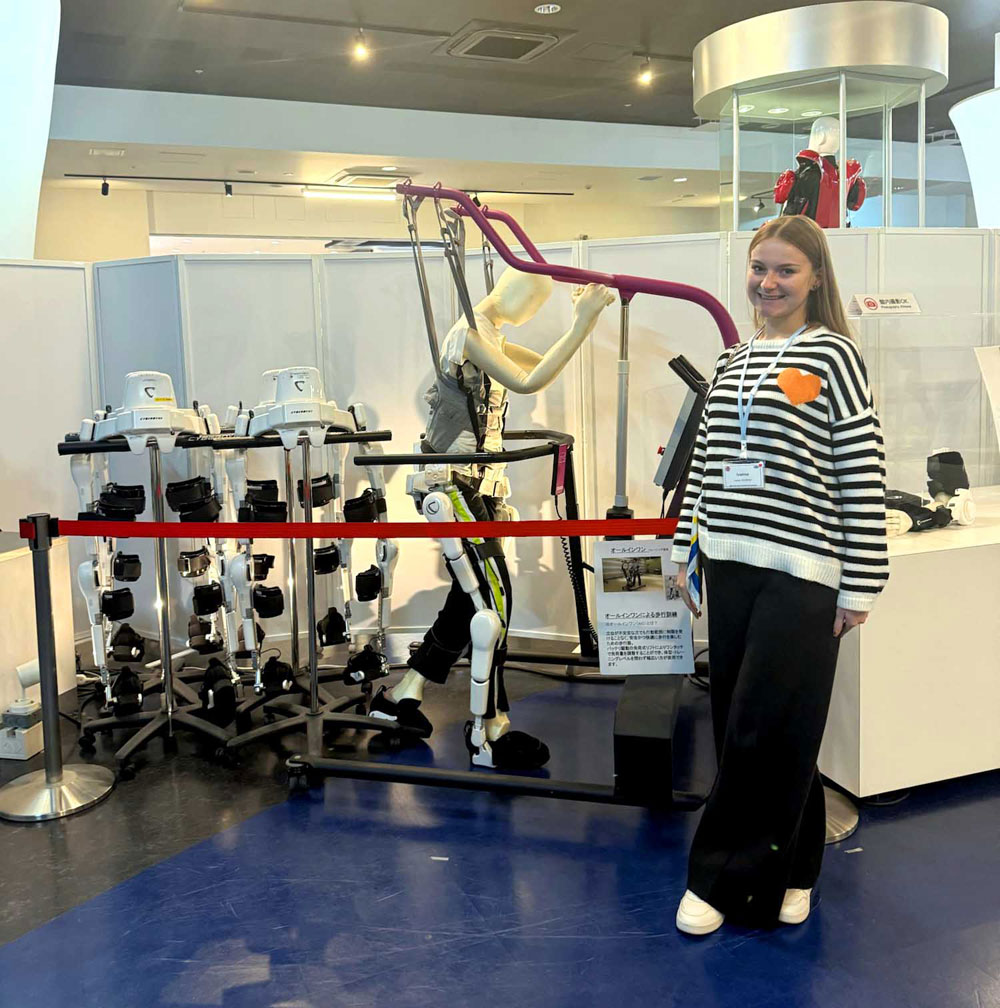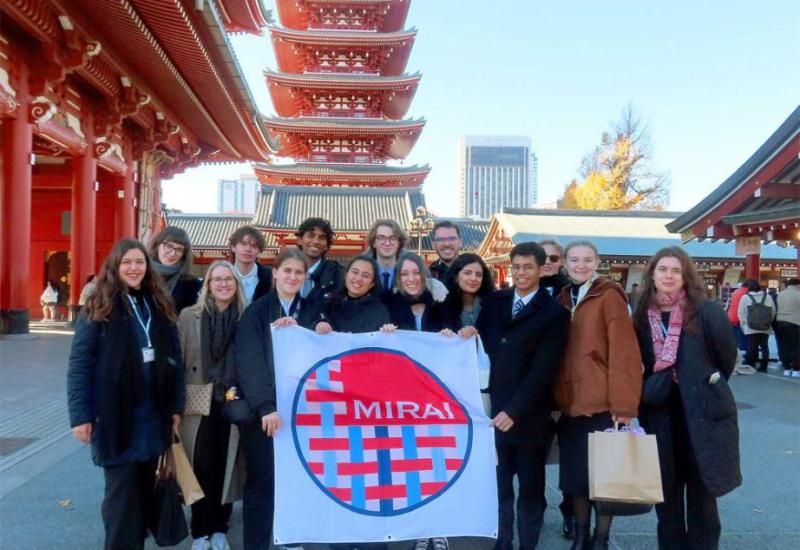Development is impossible today without getting to know new ideas, technologies, and the experience of their implementation in different countries. That's why it's very important for me to participate in projects of international dialogue and cooperation. One of my recent trips was made possible by the short-term student exchange program MIRAI (Mutual understanding, Intellectual Relations and Academic exchange Initiative), implemented by the Ministry of Foreign Affairs of Japan. Within the program, students are divided into six groups according to their interests and future plans. They include Peace, Diplomacy and Security Policy, Economics and Business, Science and Technology, Environment, and Rule of Law. Given that I study engineering and plan to further develop in this direction, I participated in the Science and Technology group.
The trip lasted a week, not including travel time. We spent the first three days in Tokyo, then three days in Ibaraki, and then returned to Tokyo. The city to which the group travels depends on the theme of the group. For example, the Peace group traveled to Hiroshima (or Hiroshima, as the name of this city is pronounced in Japanese). Despite the short duration of the program, we managed to get to know Japan very well due to our busy schedule.
MIRAI means “Future” in Japanese, and this program was really about the future. We discussed a lot about possible cooperation in education, science, and technology, both in a personal and governmental format. During the trip, we visited the leading Japanese companies Panasonic, Jaxa, and Cyberdyne. I was pleasantly surprised by the futuristic technologies they are currently working on. “Panasonic is introducing the widespread use of green energy by improving solar panels by reducing their size and increasing their efficiency. They are also working on creating a unified network of their gadgets, which will optimize their work. “Jaxa is developing space technologies, providing the ability to conduct research in space. By the way, before this visit, it was hard for me to imagine how complex the process of creating rockets, preparing astronauts for flight, and ensuring human life in space is. Cyberdyne, in turn, is working to increase human capabilities through technology and is already using its robots for rehabilitation of mobility disorders.


In the photo: Making Japanese paper lanterns and Ivanna Dovbysh
As a student of a technical university, the most important visits for me were to the Shibaura Institute of Technology and the RIKEN Center research institution. At the institute, we spent the whole day talking to students and visiting laboratories. Since I study non-destructive testing, I was most impressed by the use of terahertz waves for diagnosing building structures and medical research. All the laboratories are unique and deal with very interesting futuristic problems: augmented reality, brain-controlled technologies, separation of hydrogen from air. Many of the research projects conducted by the university's graduate students receive funding from Japanese companies, which demonstrates the high interest of the commercial sector in the country's technological development. At the RIKEN Center, we visited the department that studies the human brain. I was surprised by the number of foreign staff working at the Center. All research, publications, and posters are written or duplicated in English, which makes the Center a comfortable place to work in science and technology for scientists who do not speak Japanese. The Center also allows postgraduate and undergraduate students to conduct research at its facilities.
During our stay in Japan, we also got acquainted with its culture, visited tourist sites, and even made traditional Japanese paper lanterns called Ch'o:chin. We visited the Museum of Japanese History, where we tried on traditional clothing: a twelve-layer Juni-hitoe kimono and Yoroi-kabuto armor.
Respect for one's own traditions and culture plays an important role in everyday life in Japan and influences its development. Without familiarizing yourself with them, it is difficult to understand the peculiarities of research activities in this country. Those who plan to participate in this program should keep this in mind. For its organizers, it is very important that the participants are interested not only in the topic of the group with which they would like to visit Japan, but also in Japanese culture. In my case, the fact that I had been studying Japanese language and culture since school proved my interest and knowledge. At the same time, since all the participants come from different European countries, it is also very important to have a high level of English, as English is the main language of the program.
A few words about how to get into the program. Selection for the program takes place in two stages: filling out an online application and an interview. The selection process is open to bachelor's, master's, PhD students and young researchers who are at least 20 years old at the time of their trip to Japan. To apply online, you need a valid passport, an extract of grades or a certificate of enrollment (if you are still studying at the university), and a passport-size photo. Please note that at the stage of filling out the application, you will need to answer questions about your motivation for participating in the program, so you need to clearly understand how you personally and Ukraine will benefit from this trip.
Interviews are held in person at the Embassy of Japan in Ukraine. I was allowed to transfer the interview to an online format because I was officially on an internship in Canada. The interview also focused on my motivation for the trip and future plans: how I plan to use and disseminate the knowledge gained during the trip. In my case, it was publishing posts on LinkedIn, as I am active on my page, and spreading knowledge about Japan among students and high school students, as I am now also a math and physics teacher. The Japanese Embassy is very helpful in preparing for the trip, providing important recommendations and organizing the visa process, which greatly simplified my preparation.
All expenses within the program are covered by the organizers: flights, accommodation, food, all excursions, tickets, and transportation. In addition, you can plan your free time at your own discretion. For example, we usually visited tourist attractions in the evenings, tasted local street food and bought souvenirs. This made us feel like we got to know Tokyo and Ibaraki quite well. However, I really wish we could have extended our trip for at least a few more days.
 In the photo: During a visit to Cyberdyne
In the photo: During a visit to CyberdyneBefore the trip, we also had an online meeting where we were explained in detail the plan for each day, told about the dress code and behavioral features. This meeting was very important and prepared us for some significant things due to the difference in the mentality of our peoples. We were told about how to behave in restaurants, public places, and transportation, and about the specifics of chopstick etiquette. For me, the most difficult thing was to get used to queues and left-hand traffic: the Japanese stand in lines before entering the subway, on the escalator, and these lines are always to the left of the entrance. There is also incredible silence in public transportation. I should note that during this meeting, the participants also got to know each other.
When traveling to Japan, you should pay special attention to the dress code, punctuality, expression of emotions, and confidentiality. In most places, we were not allowed to take photos or shoot videos. The Japanese who accompanied us avoided cameras or asked us not to publish photos with them. This was especially true during our visit to the Ministry of Foreign Affairs of Japan, where confidentiality is very strictly observed. By the way, at the Ministry, as a representative of Ukraine, I heard many words in support of our country in the Russian-Ukrainian war and the establishment of peace in the world.
After the trip to Japan, MIRAI alumni regularly organize online meetings with representatives of Japanese companies and universities and cultural figures. At these meetings, you can deepen your knowledge of Japan and get useful information for your future career development. For example, we are currently holding a series of meetings with Japanese companies that are developing business in Europe.

